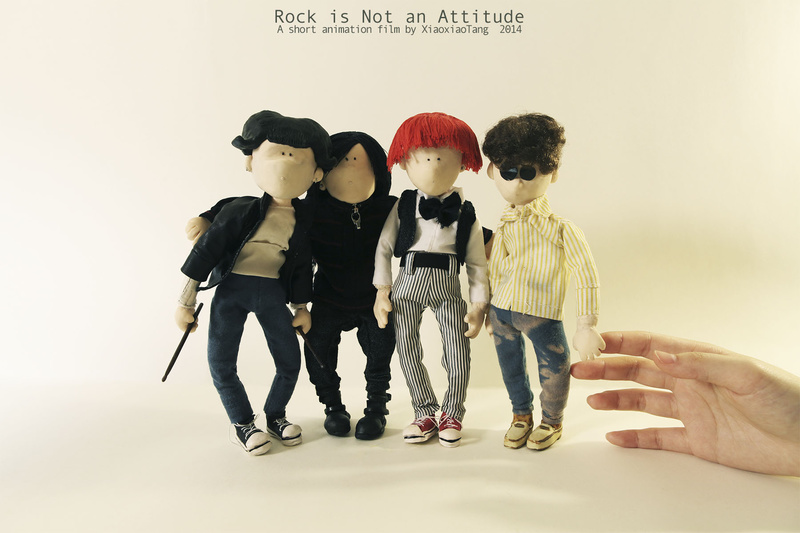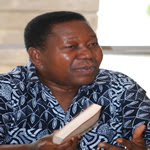ROFFEKE: Your About page on your website https://nolanstolz.com says you are a “Composer, Scholar, Percussionist/Drummer, and Music Professor.” One could be criticized for not focusing on one career or lane. How do you juggle the different hats you wear? What are the advantages of being involved in diverse aspects of music/creativity?
DR. NOLAN STOLZ: Yes, I sometimes worry about that perception and potential criticism, and maybe it happens behind my back, but that's probably just imposter syndrome setting in. When I was in my late teens/early twenties, I was concerned about that in relation to my career as a jazz musician and a classical composer. For performance credits, I would put "Nolan Stolz," but for my composition credits, I would put "Nolan R. Stolz" to differentiate. I found that jazz musicians would treat other jazz musicians that had other interests as if they were somehow lesser artists—you wouldn't be able to admit listening to anything other than jazz without being mocked. I stopped caring about that and went in my own direction as a performer, one that fused jazz, rock, classical and even other styles. A similar thing was true with the classical music world, but to a much lesser extent (at least they admitted listening to popular music!). I remember one composer in graduate school saying to me, "you don't look like a composer; you dress like a rock star." It wasn't meant to be flattering, but I actually liked that idea! Over time, I was able to find my own compositional voice by not caring what others thought or how I'd fit in. My compositions are still firmly rooted in the contemporary classical tradition—even Gravitation, whose score looks like a 1950s graphic notation piece (by the way "Gravitation" is a portmanteau of "graphic" and "notation")—yet the sound of them is clearly influenced by jazz and rock.
Nolan Stolz on Czech Radio, January 2023
The "scholar" bit didn't come until after graduate school, and I faced similar issues in that arena as well. I remember a time at a music theory conference over 10 years ago, I mentioned that I had a doctorate in composition. A music theorist (who has since become a very prominent scholar in popular music theory but wasn't yet at the time) said "I thought you were a theorist!" My response usually is "I am, and I am also a composer." I didn't do any musicology scholarship until even later. It was when a colleague asked me to write essays about Black Sabbath, Genesis, Rush, and Frank Zappa and the Mothers of Invention that set off a whole new path in musicology, one with a focus on Black Sabbath, complete with book, book chapters, presentations at conferences nationally and overseas, etc.
Was There Another Black Sabbath? Dr. Nolan Stolz explains. . .
I might go to a musicology-related conference and others assume I have a PhD in Musicology (and I'm often introduced as a musicologist), and I get similar responses. Instead, I take it as a compliment—if I'm able to publish in the theory world or in the musicology world without a PhD in either, than I must be doing something right! It all came together when a musicologist said to me "I'm so impressed that you are able to publish as a composer, as a theorist, as a musicologist, and as a drummer, and do it all very well." My imposter syndrome decreased after that kind remark, but it's still there.
The juggling part is tough because I often have to choose which conferences to go to, how to spend those few hours of time, etc. but I enjoy it all, so I stay as active as I can in all realms. For me, it works to do these different things because they all inform one another. In fact, I no longer separate music theory and musicology, and just say music analysis. I've found that the better I am with music analysis, the better a composer and drummer I become. I often approach music analysis from a composer's or performer's perspective; it helps me understand others' music if I can "put myself in their shoes," so to speak.
In the end, it was my diverse skill set that got me the jobs that I've had over the years and that got me job interviews at places I never thought possible. The common thread was hearing comments such as "we liked that you did x, but also do y." In 100 applications for one position, nobody is going to have the same skill set (unless there is only one thing that you do). It's always been the secondary thing I do that got me the job interview or the job itself.
ROFFEKE: You have performed/recorded J-Pop with the band Swinging Popsicle. How did you get involved with this project? What did you learn from the experience? If you were to recommend J-Pop to a first-timer, what would you say?
DR. STOLZ: I was sitting in my office, and my cell phone rang, showing a number I didn't recognize, one that was far too long to be coming from inside the U.S. It was a friend from high school calling from Japan. He was calling because he had booked several J-Pop and J-Rock bands to perform at a festival in California, but one of them did not—and still does not—have a full-time drummer. Swinging Popsicle (as do many other bands in Tokyo come to find out) hires drummers ad-hoc without issue, but asking one to travel all the way from Tokyo to the U.S. would not have been cost-effective.
Swinging Popsicle: "I Just Wanna Kiss You" San Jose Civic Auditorium (Fanime MusicFest) 5/26/06
My friend, who was already confident in my abilities, called to see if I was willing and available to learn their songs with very little rehearsal time. They emailed MP3s, and I learned the drum parts. We only had a 30-minute rehearsal, which was shorter than the performance itself(!), so we only had time to rehearse the start and ends of songs and to discuss how they do things differently live than on the record. The only issue is that the translator was absent, so communication was very difficult, especially because we were pressed for time.
The first four gigs I did with them were at anime conventions. The thing I learned the most from the experience was that there is a whole subculture of anime fans that dress up ("cosplay," as they call it) as characters at conferences. I knew about anime, but not about anime conventions. So, I was pretty shocked to see so many people dressed up this way at our performances and around the convention generally.
ROFFEKE: Advice for musicians, music scholars and creatives in general?
DR. STOLZ: My advice depends on their goals.
For creatives not relying on their work as their primary income, I say "create the art that you want to exist in the world: music you want to hear, films that you want to see" and so on. If it's mainstream, great! If it's experimental, great! I wish that could be the case for all, but if you are trying to make a living at your art, diversify by finding as many ways to earn an income by providing a needed service. This means you may need to play music you don't like, do lighting for a show you don't like, etc. Doing this is a business choice, not an artistic one. Both are perfectly acceptable, and it depends on the person and the balance that is right for them. I know that I would be unhappy playing drums in a Broadway show or in a touring rock band—I'd get bored so quickly! As a teenager, those were my goals (except that I wanted to play drums in production shows on the Las Vegas strip and do the occasional tour with a band). After a few years of college, that was no longer my goal; doing those sorts of things was fine to pay the bills as a job, but I learned pretty quickly that I didn't like playing other people's music—I wanted to make my own.
For scholars, know now that you won't make much money off of book sales or royalties. Income from scholarship will come in other ways, such as a teaching position and invited talks. My advice is "write the book [or article, etc.] that you believe should exist but doesn't." There is so much joy in knowing your contribution serves its purpose. It pays off in other ways, sometimes not until years later. If I hadn't written those essays for that collection (which was essentially for free—my payment was a physical copy of the two-volume book), I probably would have never gone to England, France, or Sweden to lecture on Black Sabbath, written the book on Black Sabbath, gotten a personal email from Ozzy Osbourne. . .
(Read part 1 of the interview HERE)
"Gravitation" Teaser Trailer































































































































































































No comments:
Post a Comment